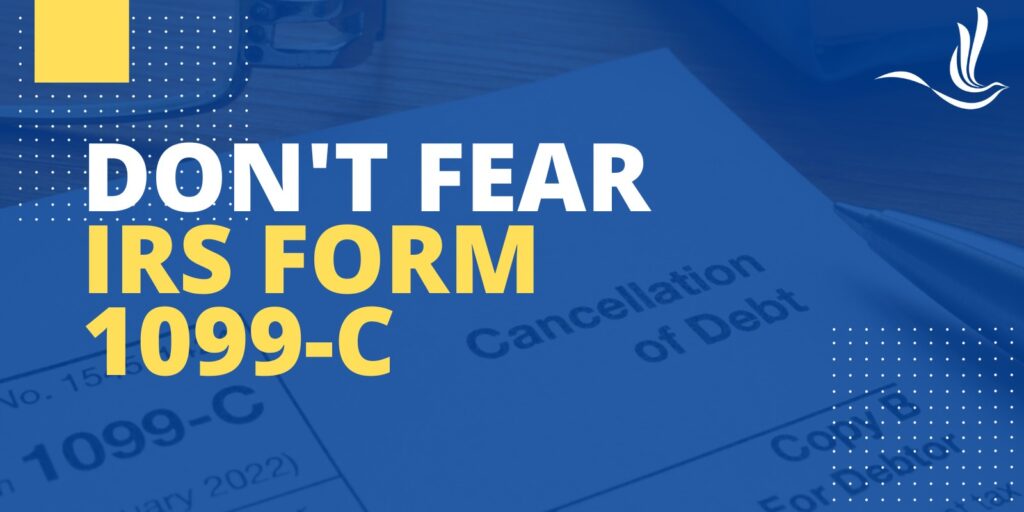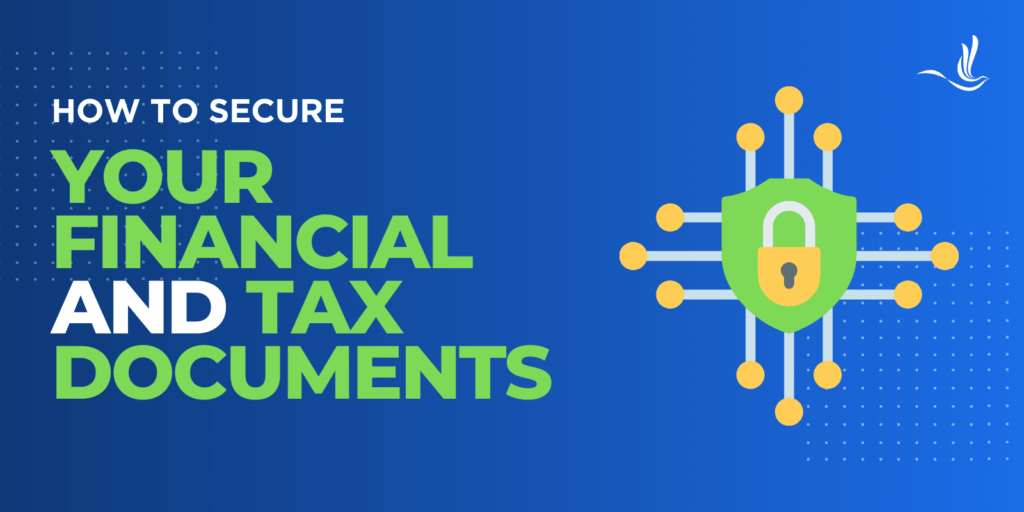Privacy Policy
Home » You searched for invest » Page 7 Privacy Policy WHAT DOES OPTIMA TAX RELIEF, LLC DO WITH YOUR PERSONAL INFORMATION? Why? Financial companies choose how they share your personal information. Federal law gives consumers the right to limit some but not all...Don’t Fear IRS Form 1099-C

Perhaps the most feared and least understood document ever published by the IRS is Form 1099-C, Cancellation of Debt. Form 1099-C is sent to people who were so deep in debt, their creditors agreed to give them a break. They do this by either reducing or cancelling their debt altogether. Think foreclosures, short sales, credit card debt settlements, and similar debt consolidation methods. The issue is that in the eyes of the IRS the cancelled debt has not disappeared. Instead, it has transformed into a new source of taxable income: debt income.
Why Do You Have to Pay Taxes on Cancelled Debt?
If you have received an IRS Form 1099-C, your first reaction was probably disbelief. It does seem counterintuitive to have to pay taxes on cancelled debt. However, the IRS’s response is that when you borrowed that money you did not have to pay taxes on it because you were bound by contract to pay it back. If you had repaid the debt, it would have been as if you had never really owned the money. However, when a creditor releases you of a liability, you are in effect receiving a payment you did not return. This is a definition of income.
1099-C Disputes
Creditors who cancel a debt of $600 or more are required by law to report the amount of debt discharged to the IRS by filing a 1099-C and sending a copy to the debtor. It’s worth mentioning that these creditors can make errors on these forms. If you disagree with the amount on the form, you need to contact the creditor and request a correction. The creditor‘s address and telephone number should be on the top of the form. If it turns out the creditor made a mistake, they can issue a new 1099-C with the correct information.
Discrepancies and Tax Audits
It is worth highlighting that the IRS also receives a copy of the information on your 1099-C. If you fail to report taxable debt income when you file your taxes, you may have to pay an additional negligence penalty. You also need to pay interest on your taxes, as well as other sanctions.
If you do not agree with the debt income amount and you cannot resolve the issue with the creditor, things get tricky. You can make a note in your tax return. However, discrepancies between your tax return and 1099-C forms, even when accompanied by explanatory notes, are tax audit magnets. Therefore, you should prepare yourself and expect the IRS to want a closer look at your accounts.
Exceptions and Exclusions
Not all types of unpaid debts are taxable. In addition, you may qualify for exclusions that could either reduce or even cancel your tax liability. IRS Publication 4681, Canceled Debts, Foreclosures, Repossessions, and Abandonments (For Individuals), discusses the subject of debt income exceptions and exclusions in detail. If you qualify for any of these exceptions, you need to fill in and attach IRS Form 982, Reduction of Tax Attributes Due to Discharge of Indebtedness, to your form 1040.
Some examples of exceptions and exclusions include:
- Gifts. Debts canceled as a gift, a bequest or as part of an inheritance are generally not considered income.
- Student Loans. Student loans cancelled in exchange for meeting certain requirements, student loan repayment help programs, student loan cancellation from 2021 through 2025.
- Bankruptcy: Debts canceled during a title 11 bankruptcy are excluded from gross income. To prove debt income reported in a 1099-C was discharged as part of a bankruptcy, complete and attach Form 982 to your tax return and make sure you check the box on line 1a.
- Insolvency. If your debts were cancelled due to insolvency – because your debts were greater than your total assets – some or even all of your cancelled debt may not be taxable. For instance, if your total assets amounted to $10,000 and your total debt was $15,000, you may not have to pay taxes on debt income of $5,000 or less. If you were insolvent when your debt was forgiven, check box 1b in Part 1 of Form 982 and attach it to your tax return. Form 982 includes an insolvency worksheet to help determine how much of the debt you can exclude.
- Principal Residence. If the cancelled debt was on your principal residence, you can exclude up to $750,000 of the debt. You can exclude up to $375,000 if married filing separately. Mind you, this does not apply to investment or vacation homes.
Don’t Panic, You May Be Exempt
If you receive a 1099-C Form, try not to panic. You may be exempt from paying taxes on the debt income. If not, you probably can exclude a big chunk of it. However, negotiating debt income matters with creditors and the IRS is a complex matter. Hiring a tax professional with experience in debt income cases may save you a lot of cash, time and stress. Consider hiring a qualified tax advisor with experience in debt income matters. They might be able to determine whether your cancelled debt is taxable, how much you can exclude, and how to manage negotiations with creditors. Optima Tax Relief is the nation’s leading tax resolution firm with over $1 billion in resolved tax liabilities.
If You Need Tax Help, Contact Us Today for a Free Consultation
Unfiled Tax Returns
Home » You searched for w2 Unfiled Tax Returns Taxpayers that fail to file their tax return for one or more years for various reasons can become overwhelmed later on down the road when attempting to file all their missing tax years at once. Missing all or a portion...How to Secure Your Financial and Tax Documents

Tax and financial documents are some of the most sensitive and valuable records you possess. They contain critical information about your income, assets, and financial history, making them prime targets for identity thieves and fraudsters. Protecting these documents is not only essential for your financial well-being but also for safeguarding your personal information. In this article, we’ll discuss various strategies and best practices to help you secure your financial and tax documents effectively.
Organize Your Documents
Start by organizing your tax and financial documents. Gather all relevant paperwork, including tax returns, bank statements, investment records, and insurance policies. Create a filing system that categorizes these documents by type and date. Organizing your records not only makes it easier to find what you need but also reduces the chances of misplacing or losing important information.
Use Secure Storage
Once your documents are organized, it’s crucial to store them securely and not all in one place. Consider the following storage options:
- Physical Storage: Use a fireproof and waterproof safe or file cabinet to store physical copies of your documents. Make sure the safe or cabinet is in a secure location in your home.
- Digital Storage: Scan your documents and store them digitally on a secure, password-protected computer or external hard drive. You can also use cloud storage services with strong encryption and two-factor authentication.
- Offsite Storage: Consider storing physical copies of important documents in a safety deposit box at your bank or in a secure storage facility. This provides an additional layer of protection in case of a disaster.
Password Protection
If you’re storing your financial documents digitally, make sure your computer and storage devices are password protected. Use strong, unique passwords for your devices and accounts. Consider using a password manager to generate and store complex passwords securely.
Encryption
Encrypt your digital financial documents to add an extra layer of security. Most modern operating systems offer built-in encryption tools, or you can use third-party encryption software. Ensure that your chosen encryption method is robust and up-to-date, and that you will have no issue providing copies of your documents to taxing authorities.
Regular Backups
Backup your digital documents regularly to prevent data loss. Scheduled automatic backups to an external drive or a secure cloud storage service can help ensure that your financial records are safe even if your computer crashes or is compromised.
Limit Access
Restrict access to your financial documents. Only share them with trusted individuals or professionals who need the information for legitimate purposes, such as accountants, financial advisors, or lawyers. Be cautious about sharing sensitive information electronically and use secure methods when necessary.
Shred Old Documents
Dispose of physical documents you no longer need by shredding them. Identity thieves often sift through trash in search of valuable information. Investing in a cross-cut or micro-cut shredder is a wise choice to make it more challenging for anyone to reconstruct shredded documents.
Be Wary of Phishing Scams
Beware of phishing emails and scams that impersonate government agencies or financial institutions. The IRS and other legitimate organizations do not typically request sensitive information via email. Verify the sender’s authenticity before sharing any information or clicking on links.
Regularly Monitor Your Accounts
Frequently review your bank and credit card statements, as well as your credit reports, for any suspicious activity. Detecting fraud early can prevent significant financial losses.
Educate Yourself
Stay informed about current cybersecurity threats and scams. The more you know about potential risks, the better equipped you’ll be to protect your financial documents.
Get Tax Help from Optima Tax Relief
Protecting your tax and financial documents requires diligence and a proactive approach. By implementing these strategies and best practices, you can safeguard your sensitive information and reduce the risk of identity theft and financial fraud. Remember that prevention is key, and investing time and effort into securing your financial documents is a small price to pay for the peace of mind that comes with knowing your financial future is protected. Optima Tax Relief is the nation’s leading tax resolution firm with over a decade of experience helping taxpayers with tough tax situations.
If You Need Tax Help, Contact Us Today for a Free Consultation